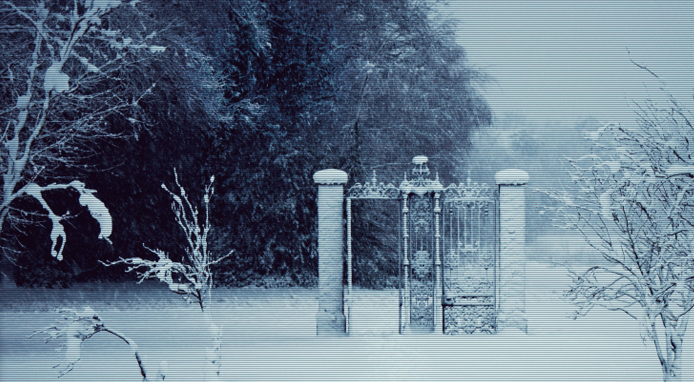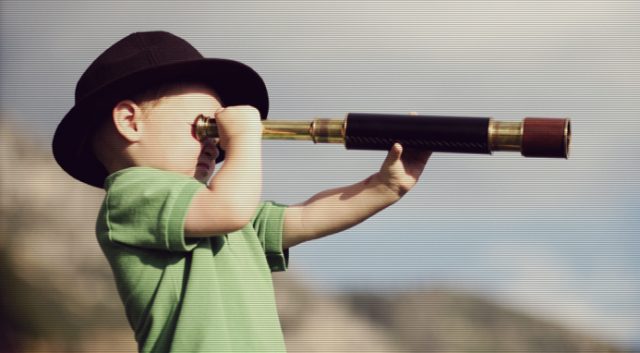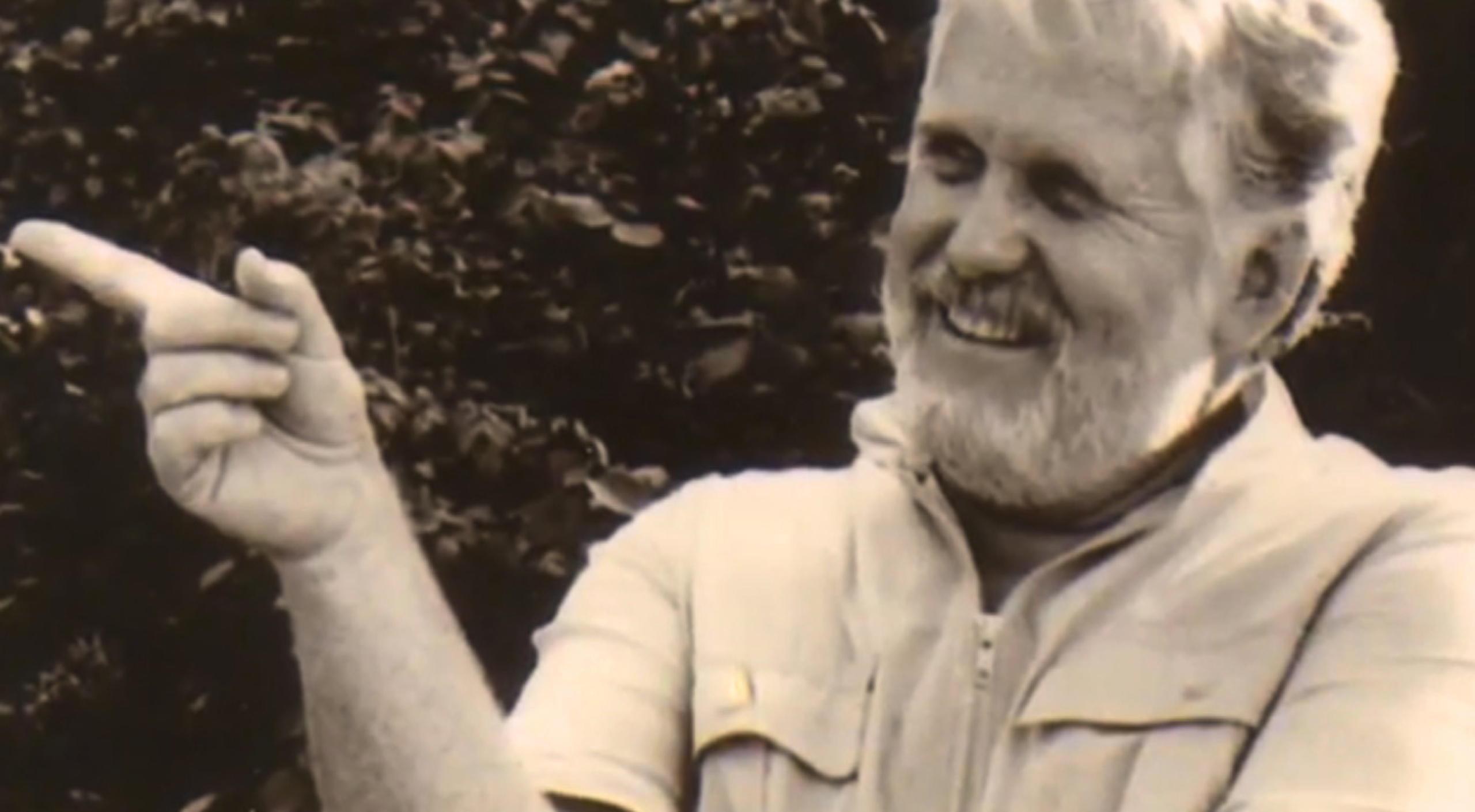James Mumford examines how CS Lewis presented the gospel through ‘The Lion, The Witch and The Wardrobe’.
A crowd of students once asked a famous theologian. “What’s the most profound truth you’ve learnt from all your studying?” Without hesitation he replied. “Jesus loves me this I know / For the bible tells me so.”
Just as that theologian professed his faith through the simple words of an infant chorus, CS Lewis presented the gospel in the famous children’s stories. ‘The Chronicles of Narnia’.
Anyone who has read or watched any of the Narnia tales will fondly recall being drawn into another world of speaking animals and magical powers. But there is more to Narnia than just Lewis’ wonderful imagination; there is also profound allegory. Those ‘robust doctrines’ of Christianity – the fall of man or the coming of Christ – are all conveyed in fresh terms. Christians and critics alike raved about his writing; Times said, “He has quite a unique power for making theology an attractive, exciting and fascinating quest”. For a postmodern world bored by theology, dismissive of absolutes and sceptical of organised religion. Lewis provides a most exciting alternative.
Lewis observed that the world was a place full of good things that had gone wrong, a place where creation had been somehow spoiled.
The winter of the White Witch
It was the clarity of Lewis’ writing that made him so popular; he was not a philosopher of abstract theories but a Christian whose faith was grounded in the realities of life. To begin his defence of “mere” Christianity, Lewis argues that when he was an atheist he realised that, although his conscience told him the right and reasonable way to behave, something in his nature prevented him from doing do. Like so many of us, Lewis observed that the world was a place full of good things that had gone wrong, a place where creation had been somehow spoiled.
From this point of departure, he goes on, “One of the things that surprised me when I first read the New Testament seriously was that it talked so much about a Dark Power in the universe – a mighty evil spirit who was held to be the power behind death and disease and sin. Christianity thinks this Dark Power was created by God, and was good when he was created, and went wrong. The universe is at war. But it does not think this is a war between independent powers. It thinks it is a civil war, a rebellion, and that we are living in a part of the universe occupied by the rebel. Enemy-occupied territory – that is what the world is.”
Christianity is the story of how the rightful king has landed in disguise and is calling us all to take part in a great campaign of sabotage.
Lewis vividly describes this “enemy-occupied territory” in the first of his Narnia tales, ‘The Lion, the Witch and the Wardrobe’. Just as our world is plagued by pain because of Satan, Narnia is frozen by the rule of a White Witch so that “it is always winter and never Christmas”. The story tells of how a noble lion named Aslan enters Narnia, bringing the spring and breaking the spell, just as “Christianity is the story of how the rightful king has landed in disguise and is calling us all to take part in a great campaign of sabotage. When you go to church you are really listening-in to the secret radio from our friends: that is why the enemy is so anxious to prevent us going.”
Taken by Turkish delight
So the world’s predicament – the suffering all around us that we can see but cannot stop – is essentially evidence of the devil’s takeover. But how did we humans ever fall for his tricks? This is the next stage of Lewis’ explanation: “God created things that had free will. That means creatures that can go either wrong or right. And if a thing is free to be good it is free to be bad. Free will is what has made evil possible.
What Satan put into the heads of our remote ancestors was the idea that they could ‘be like Gods’
Why then did God give them free will? Because free will, though it makes evil possible, is also the only thing that makes possible any love or goodness or joy worth having. A world of automata – of creatures that worked like machines – would hardly be worth creating. The happiness which God designs for His higher creatures is the happiness of being freely, voluntarily united to Him and to each other in an ecstasy of love and delight. And for that they must be free. However, the moment you have a self at all, there is a possibility of putting yourself first – wanting to be the centre -wanting to be God, in fact. That was the sin of Satan: and that was the sin he taught the human race. What Satan put into the heads of our remote ancestors was the idea that they could ‘be like Gods’-could set up on their own as if they had created themselves – be their own masters – invent some sort of happiness for themselves apart from God. And out of that hopeless attempt has come nearly all that we call human history – money, poverty, ambition, war, prostitution, classes, empire, slavery”.
In ‘The Lion, the Witch and the Wardrobe’ the “beastly” child Edmund enters Narnia of his own free will. No sooner does he begin to marvel at the incredible world around him, than he is preyed upon by “our old friend the devil”. The White Witch “teaches” him to put his own self first; she “puts into his head” the idea that he can be king of Narnia. As Adam is tempted by the apple, Edmund is taken by the Witch’s bait, delicious Turkish delight. And, as in our hedonistic society, he is consumed by his addiction.
Atonement on the table
But if we, like the greedy and selfish Edmund, have gone wrong, is there any way we can go right? If we have fallen, how can we rise? The Christian answer points to a sacrifice God once made. This is how Lewis describes the mystery called ‘the atonement’: “If God was prepared to let us off, why on earth did He not do so? And what possible point could there be in punishing an innocent person instead? If you think of it in terms of debt, there is plenty of point in a person who has some assets paying on behalf of someone who has not. Or if you take ‘paying the penalty’ in the general sense of footing the bill then, of course, it is a matter of common experience that, when one person has got himself into a hole, the trouble of getting him out usually falls on a kind friend. Now what sort of hole had man got himself into? He has tried to set up on his own, to behave as if he belonged to himself. In other words, fallen man is not simply an imperfect creature who needs improvement: he is a rebel who must lay down his arms.”
The lion’s agonizing and humiliating death has become one of the most powerful pictures of the atonement ever painted.
In ‘The Lion, the Witch and the Wardrobe’ Aslan is the “kind friend” who saves Edmund from his terrible “hole”. The lion’s agonizing and humiliating death has become one of the most powerful pictures of the atonement ever painted. We read that the White Witch’s hags, who “shrieked when they found that he made no resistance at all”, bind the great lion to the stone table. Next an ogre shaves off his golden mane as the crowd jeer, “He’s only a great cat after all! Puss, Puss, poor pussy!” Finally, muzzled and bare, the lion is killed by one blow of the witch’s knife. As the children hiding in a nearby bush realise what Aslan did for Edmund, we see what Jesus did for us. We despair at His death but marvel at His mercy.
Fighting for the lion of Judah
Yet Aslan’s death is not the end of the story! In the morning, He rises from the dead. Then he wages war on the witch, undoing her work, breathing life into the statues she had turned to stone, and setting them free.
This struggle perfectly illustrates the time of warfare in which we now live. God is setting the captives free but the defeated devil has not yet been destroyed. And although, like Edmund, we have now joined the winning side, the battle often wounds and weakens us, and we ask, “why did he land in this enemy-occupied world in disguise, starting a sort of secret society to undermine the devil?” and “Why is He not landing in force, invading it? Is he not strong enough?” In a last inspiring quotation, CS Lewis explains why we must keep fighting for the ‘Lion of Judah’: “Christians think He is going to land in force; we do not know when. But we can guess why he is delaying. He wants to give us the chance of joining his side freely.
I wonder whether people who ask God to interfere openly and directly in our world quite realise what it will be like when he does.
“God will invade. But I wonder whether people who ask God to interfere openly and directly in our world quite realise what it will be like when he does. When that happens, it is the end of the world. When the author walks on to the stage the play is over…what is the good of saying you are on his side then, when you see the whole natural universe melting away like a dream. For this time it will be God without disguise; something so overwhelming that it will strike either irresistible love or irresistible horror into every creature. There is no use saying you choose to lie down when it has become impossible to stand up. That will not be the time for choosing: it will be the time when we discover which side we have really chosen, whether we realised it before or not.
“Now, today, this moment, is our chance to choose the right side. God is holding back to give us that chance. It will not last forever. We must take it or leave it.”









